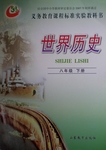题目内容
--QQ,as a means of communication,is quite popular among us and costs less than the traditional forms.
--______________.
A. So is WeChat B. So it is WeChat
C. So does WeChat D. So WeChat is
练习册系列答案
 探究与巩固河南科学技术出版社系列答案
探究与巩固河南科学技术出版社系列答案
相关题目
题目内容
--QQ,as a means of communication,is quite popular among us and costs less than the traditional forms.
--______________.
A. So is WeChat B. So it is WeChat
C. So does WeChat D. So WeChat is
 探究与巩固河南科学技术出版社系列答案
探究与巩固河南科学技术出版社系列答案